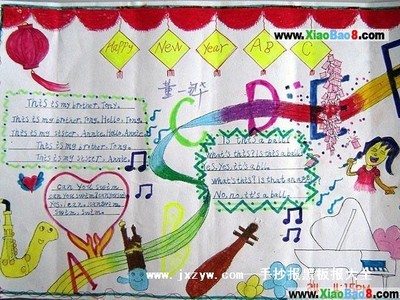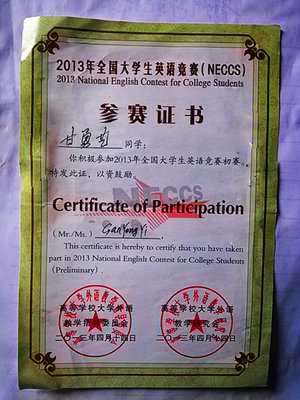SSP Dec. 312014
元旦作业,自读,自查字典,自划词组,周一收上来检查,未见阅读痕迹者,周一补做抄写加翻译。
祝大家新年快乐哟~~~~
Open Hands, HelpingHands
Charity is the voluntary giving of help, usually in the form ofmoney, to people in need. Traditionally, Chinese have not beenopen-handed when it comes to giving money to strangers: money ismeant to stay in the family. But three teenagers are setting anexample for others to try to change that attitude.
Two brothers, Wei Congtai and Wei Qitai, and their friend YangXing, have taken all the hong bao (红包)they've saved over the past ten years, a total of 500,000 yuan, andset up a charity to help poor students in rural areas. The threeboys think that it is important for those who have much to helpthose who have much to help those who have less.
This is an unusually generous gesture when you compare charitabledonations in China with that in the U.S. Chinese individuals givejust $8 a year to charity, while American individuals give $1,000 ayear, charitable donations in China have actually fallen by 17percent according to the Chinese Social Science Academy(中国社科院).
This last statistic may have something to do with the scandals thathave surrounded some of the big charities in China such as the GuoMeimei scandal involving the Red Cross. Chinese donors want to besure that their money is being spent wisely.
That’s why the three boys have set up their own charity. Now theycan control how the money is spent and they are learning aboutresponsibility and how to operate a charity. More importantly, theyare also showing that young people can lead the way in helpingthose in need have a better life.
单词表:
voluntary adj. 自愿的 ------ volunteerv.主动提供/n.志愿者
open-handed adj. 慷慨的,大方的 generousadj. 慷慨的,大方的
gesture n.姿态,表示charitableadj. 慈善的 --- charityn.慈善
donation n.捐款--- donatev.捐--- donatorn.捐款人

individual n.个人,个体statistic n.统计,统计数字
scandal n.丑闻involve v.牵涉
Are These SayingTrue?
MythBusters (《流浪终结者》) is a scienceentertainment television program. Its hosts (主持人), Jamie andAdam, look at some widespread rumors. They carry out experiments totest if the rumors are true or false. Here are three interestingrumors.
Elephants are afraidof mice.
Pliny the Elder (古罗马学者老普林尼) once said,“The elephant hates the mouse above all other creatures.” To provethe saying, Jamie and Adam travelled to South Africa to place micearound elephants and see what would happen. They placed mice insmall holes in the ground and covered them with balls of elephantdung (粪便). When anelephant came closer, they pulled the dung away to show the mice.The elephants walked in other directions at the sight of the mice.The elephants’ unusual behavior was enough to prove the old sayingplausible (看似合理的).
A human voice canshatter a glass.
It is said that Italian singer Enrico Caruso (男高音歌唱家恩里科.卡鲁索) from the early20th century could shatter a wine glass with his voice.To test the saying, Jamie and Adam asked a trained singer to breaksome glasses. With her sharp voice, the singer broke glasses withease.
A human voice can shatter a glass when it is powerful enough tocause the glass to vibrate (振动). To confirmthe saying, Adam also shattered a glass in the show although he wasnot trained.
The color red makesbulls angry.
The Spanish began using a small red cape (红披风) inbullfighting around the 1700s. Ever since, people have believedthat the color red makes bulls go wild.
Jamie and Adam asked a bullfighter to hold flags of differentcolors. The bull was not interested in flags that were not waved,no matter if they were red, blue or white. To make a bull angry,the flags had to be waved.
It turns out that the color red isn’t what causes bulls to attack.In fact, bulls only attack the object which is movingfast.
 爱华网
爱华网



